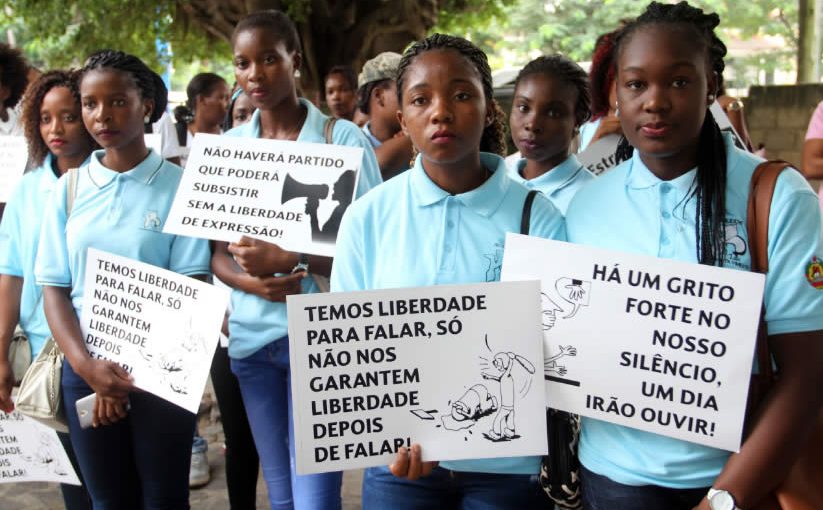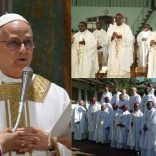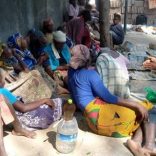Pope Leo XIV’s election “a sign of hope”, Catholic Bishops in Mozambique say, pledge ...
Civil society calls for defence of freedom of expression

O País
Members of Mozambican civil society organisations on Friday held a vigil in central Maputo, outside the headquarters of the National Union of Journalists (SNJ), to protest against violations of freedom of expression.
The site was chosen because the latest assault on free expression took place in front of the SNJ on 27 March when journalist and lawyer Ericino de Salema was kidnapped in broad daylight. He was driven along the Maputo Ring Road into Marracuene district where his kidnappers savagely assaulted him, breaking bones in both his legs.
For the participants in the vigil, acts of kidnapping, intimidation and torture are a threat to freedom of speech and of the press, and violate Mozambican democracy. They carried placards with slogans such as “We have freedom of speech, but nobody guarantees us freedom after we have spoken”, and a warning that “No party will be able to survive without freedom of expression”.
The vigil was a follow-up to Tuesday’s delivery of a petition by the same civil society bodies to Veronica Macamo, chairperson of the Mozambican parliament, the Assembly of the Republic.
The petitioners wanted the Assembly and the government to guarantee the freedom of expression and the right to information that are enshrined in the Mozambican constitution. They also wanted the Assembly to call Interior Minister Basilio Monteiro before a parliamentary hearing to explain what the police are doing to track down the authors of the killings and beatings that have punctuated Mozambican politics with stark regularity in recent years, without any of their authors being brought to justice.
Salema himself has now left the country for further medical treatment in South Africa. His departure on Thursday morning was marred by acts of gross insensitivity by the police on duty at Maputo International Airport.
Passengers normally go to their planes from the first floor. For Salema, who is in a wheelchair, this proved impossible since the lift was out of order. Carrying Salema and his wheelchair up the stairs was also out of the question.
So, according to reporters who witnessed these events, airport staff suggested that Salema and his companions make their way to the aircraft boarding area along the ground floor. At this stage, the police intervened and insisted that Saelma would have to make his way to the boarding area alone, without his companions (one of whom was his wife).
Deeply distrustful of the attitude shown by the police, Salema’s companions insisted that at least one of them should accompany him. Although it was eminently reasonable that a seriously injured passenger in a wheelchair should be accompanied by his wife, it was only intervention by the Swedish ambassador, who had come to bid farewell to Salema, that persuaded the police to allow Salema and both his companions through the ground floor doors.
But the incident was far from over – a man dressed in civilian clothes, who refused to identify himself, but claimed to be a policeman, tried to prevent the trio from passing through the doors. Salema’s second companion started to take photographs with his cell phone. He was accused of defying a state authority and taken to the airport police station where he was told to destroy the photos.
Salema and his wife were then able to enter the aircraft, and Salema’s second companion, who was not travelling to South Africa, was released from police custody a short while later. By then, social media had been inundated with messages about the poor treatment Salema and his companions had received at the airport.
The police seem no nearer arresting those who attacked Salema. Police spokespersons merely say that they are continuing their investigations and that Salema has been cooperating with them.













Leave a Reply
Be the First to Comment!
You must be logged in to post a comment.
You must be logged in to post a comment.